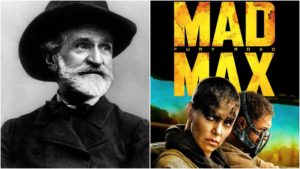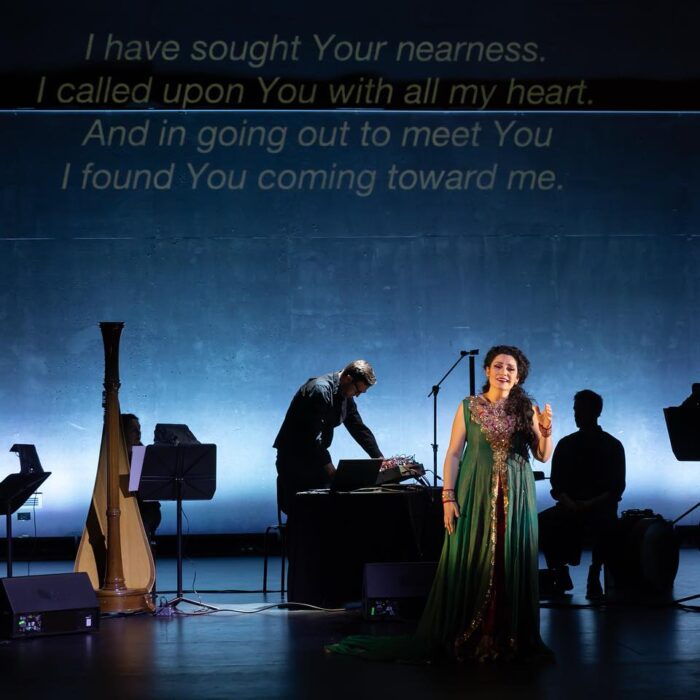
Opera Meets Film: Verdi’s Requiem Adds Operatic Dimension to ‘Mad Max: Fury Road’
By David Salazar“Opera Meets Film” is a feature dedicated to exploring the way that opera has been employed in cinema. We will select a section or a film in its entirety, highlighting the impact that utilizing the operatic form or sections from an opera can alter our perception of a film that we are viewing. This week’s installment we will take a look at “Mad Max: Fury Road.”
When the trailer for George Miller’s hotly anticipated reboot “Mad Max: Fury Road” was released months before the film’s summer release, there was an exciting and unique piece of music showcased in the soundtrack – the “Dies Irae” from Verdi’s Requiem.
In the grand scale of this epic trailer, it added to the sense of apocalyptic doom. Moreover, Verdi’s music is propulsive and agitated, adding those elements to the film’s trailer.
Many wondered whether it would make an appearance in the film itself.
It was. Though far from how one would expect.
Unlike the trailer where the music is preponderant and noticeable, the film’s use of this same passage is more of a “blink and you’ll miss it” kind of situation.
It appears for mere seconds spread across a handful of shots. Halfway through the movie, Immortan Joe’s brother, the Bullet Farmer, goes after the escaped heroes in the middle of the night.
A bullet from Furiosa blinds him and in his fury, he starts spraying bullets everywhere with wild abandon. As he does, we hear flashes of the “Dies Irae.”
It’s actually a unique moment in the film, edited around music by Junkie XL, and seemingly diegetic in the context of the scene. Rewatching this moment, it seemed like the music was playing from the speakers of the Bullet Farmer’s car. This was further substantiated by the quotes he screams out as he rains down his bullet storm. “I am the scales of Justice, conductor of the Choir of Death. Sing Brothers Sing!” He screams out repeatedly as if it is his fuel for more and greater power.
Verdi’s music operates on a number of levels for the viewer. It adds apocalyptic menace to the proceedings, but given the context, it also plays up the farcical elements of the Bullet Farmer’s tirade. “Mad Max: Fury Road” is no stranger to the occasional metajoke, especially with regards to the guitarist perched on one of the villainous vehicles. It adds a level of camp that grounds the dark and dreary world, adding and layering it with complexity. The same goes for Verdi’s musical interjection. The Bullet Farmer thinks he has grandeur and power of the day of judgment. He doesn’t. Verdi’s Requiem doesn’t necessarily lead to a place of healing, the “Dies Irae” returning time and again, but it doesn’t end with the darkness of the Bullet Farmer’s own blinded state.
“Mad Max” is operatic. It’s characters larger than life figures engaged in a complex battle for the soul of the world. The action setpieces are famously balletic, each with their own style and emotional power – similar to what one would expect within an opera. Adding in a small passage from Verdi’s “Requiem” emphasizes these qualities and reminds the viewer of the operatic nature of the film.


